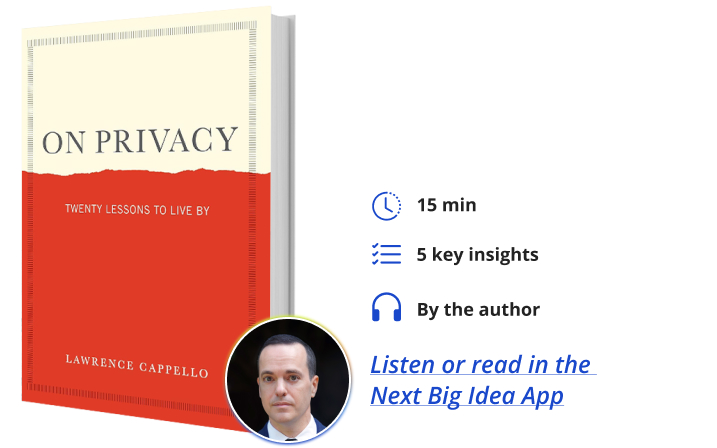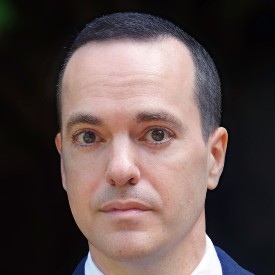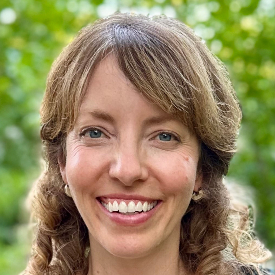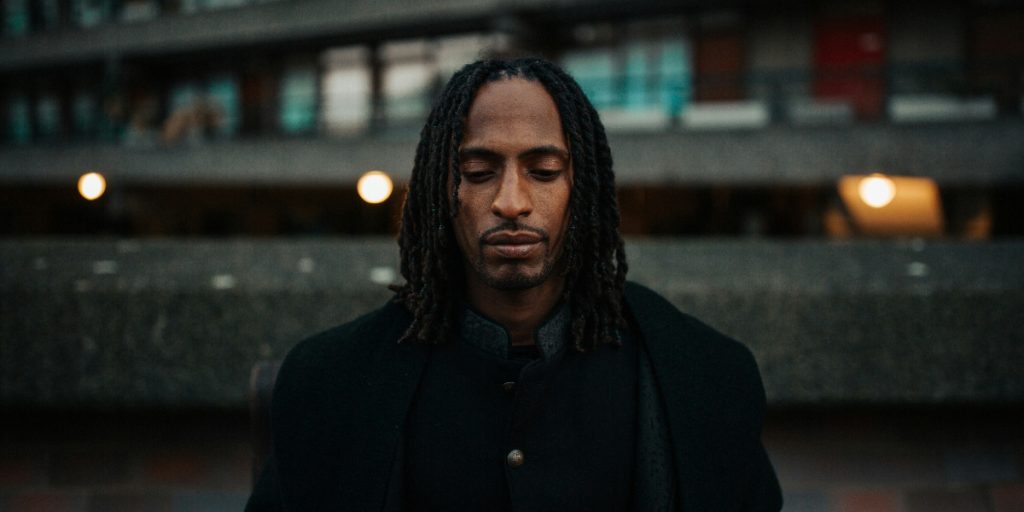Lawrence Cappello is an award-winning professor of U.S. legal & constitutional history at the University of Alabama and a graduate of New York City Public Schools. He is the author of None of Your Damn Business: Privacy in the United States from the Gilded Age to the Digital Age (University of Chicago Press) and a certified information privacy professional (CIPP/US & CIPM). His work on the right to privacy has appeared in The Wall Street Journal, The Atlantic, The Economist, The Hill, and other media outlets.
What’s the big idea?
In an age of constant connectivity, privacy can feel like a thing of the past—but award-winning professor Lawrence Cappello makes a compelling case for why it still matters. With twenty sharp, practical lessons, On Privacy explores how privacy protects free societies, enhances personal well-being, and is worth defending. Designed for those who want to stay connected without sacrificing their personal space, it offers clear, actionable steps to safeguard privacy in everyday life. Concise, practical, and no-nonsense, On Privacy is a must-read guide to reclaiming control in the digital age.
Below, Lawrence shares five key insights from his new book, On Privacy: Twenty Lessons to Live By. Listen to the audio version—read by Lawrence himself—in the Next Big Idea App.

1. Why privacy matters.
There are parts of your life that are simply nobody else’s business. That’s not paranoia—that’s just being human. It doesn’t matter if you’re liberal or conservative, rich or poor—everyone, on a fundamental level, has a desire to keep certain aspects of their life private. Privacy is essential for human dignity.
Privacy acts as a shield against people who would take snippets of information out of context to attack our reputations or manipulate us for their own personal benefit. And in the internet age, this is happening a lot more often.
Privacy also creates space for intimacy. We share our secrets with the people we love and trust. It’s a crucial building block for establishing the trust needed to forge and maintain deep bonds with our friends and loved ones. For many of us, these bonds are the very best part of being alive.
And it keeps us from being prisoners of our recorded past. A mistake you made at 16 shouldn’t define you at 40. But without privacy, our worst moments follow us forever.
It also protects our mental health. Everyone needs time alone to think, to recharge, to just be. Without privacy, we never get a break from the noise
Most importantly, privacy is a precondition for freedom. Tyrants invade privacy to accumulate power, suppress dissent, and control their citizens. If a society calls itself free, it must protect privacy—because without it, freedom is just an illusion.
2. How to respond when someone says: “If you’re not doing anything wrong, you should have nothing to hide.”
You’ve heard it before: “If you’re not doing anything wrong, you have nothing to hide.” That argument sounds reasonable—until you think about it for more than five seconds.
People have been throwing this line around since the time of the Caesars, and it was just as stupid then as it is now. When you look at it closely, you realize this argument is just another way of saying that all secrets are bad. That privacy is only for criminals or people doing something sinful. But that’s nonsense.
“Secrets aren’t sinful.”
We all have secrets, and they’re not just normal—they’re essential. The secrets between romantic partners or close friends build trust and intimacy. The secrets between doctors and patients create a space where people can be honest about their health and their fears. The secrets between business associates protect innovation and keep creative ideas from being stolen.
Secrets aren’t sinful. And really, how interesting can you really be if you don’t have any secrets?
The problem is that all of our personal information today exists in snippets. And when taken out of context, these snippets can be twisted, misinterpreted, or weaponized against us. In the Internet Age, this happens constantly.
People make snap judgments. Bad actors manipulate narratives. Reputation-damaging leaks happen in seconds.
So, no, it’s not about hiding anything. It’s about controlling how we’re seen and making sure our private lives aren’t distorted or exploited by people who don’t have our best interests at heart.
3. Three quick ways you can protect your privacy right now.
- Cover your webcam.
It sounds paranoid—until you realize that hackers can and do hijack webcams all the time. A simple slide cover or even a piece of tape blocks prying eyes. They cost about three dollars.
Think about some of the more intimate things you do in front of your laptop. Now, think about the things your kids, your partner, or your loved ones might also do. Do you want a stranger in a position to record that? I don’t know one person who works in tech that doesn’t have a slide over their laptop – and you should too.
- Use old-school passcodes for your phone, not FaceID or fingerprints.
A six-digit passcode for your phone might feel old-school, but it’s still one of the most effective ways to keep your data locked down. Biometric security like FaceID and fingerprints may feel futuristic, but they’re getting easier to hack. Nobody can hack your brain. You can be forced, legally or physically, to unlock your phone with your face or fingerprint. It’s way harder to make you spit out your passcode.
- Open your phone and check your app permissions.
Right now, there’s a good chance some app on your phone has access to your microphone or camera, even if it doesn’t need it. Some apps default to always listening, always tracking.
Take two minutes to check your settings and shut off unnecessary access. You’ll be shocked at what’s running in the background.
None of these are drastic steps. They’re low effort, high reward ways to instantly boost your privacy.
4. If you want change, make privacy profitable.
In America, money talks. We need to show companies that they can get rich by protecting privacy.
The good news is that this is already happening. Have you seen an Apple commercial in the last couple of years? They built a whole ad campaign around the slogan “PRIVACY—THAT’S IPHONE.”
Google, as well, runs ads for privacy all the time.
Have you been on a subway or bus in a major metro area lately? Clever ads for VPNs are everywhere.
“Did you know that the fastest-growing company in America in 2020 was a firm that helps businesses build privacy plans?”
Privacy is now a commodity, and the market is responding. Privacy-first products—VPNs, encrypted messaging apps, password managers—are booming. Did you know that the fastest-growing company in America in 2020 was a firm that helps businesses build privacy plans?
Why? Because consumers are demanding it.
So many privacy invasions revolve around money. If we want real, lasting change, we need to make privacy profitable. That means spending money on privacy-first products and calling out companies that exploit data, because bad press affects the bottom line.
If you want companies to care about privacy, make it worth their while. If you’re betting on Congress to fix this, you’ll be waiting quite a while.
5. Privacy isn’t dead.
People say all the time that privacy is dead—and to those people, I say go hand your unlocked phone to a stranger for five minutes and try not to have a panic attack.
If privacy were truly dead, cybersecurity wouldn’t be a trillion-dollar industry. Companies spend fortunes protecting their data. Governments guard their secrets. Even the people who claim they don’t care about privacy still use passcodes, delete messages, and think twice before posting certain things online.
I’ve never met anybody who wants their text messages exposed to the public. Or their emails. Or their search history.
The truth of it is that we have way less privacy than we used to, and people are exhausted. They’ve been told privacy is dead for so long that they no longer know what to fight for.
“I’ve never met anybody who wants their text messages exposed to the public.”
So, let’s get real about it. Instead of making privacy some impossible, all-or-nothing battle, we need to cut through the noise and focus on what kinds of privacy actually matter to people—what they instinctively protect in their daily lives.
And because this issue has become so tangled, the last thing we need is academic jargon or overcomplication (and I say this as a professor). What people need are clear, practical solutions.
The first step to protecting privacy is being able to explain why it matters in a way anyone can understand. That’s what this very short book is—a practical guide, written in plain-spoken language, that cuts through the complexity.
So, if you’ve ever felt overwhelmed by privacy debates or know someone who has, On Privacy was written with you in mind. Let’s start having smarter, saner conversations about privacy—because it’s not dead.
Privacy matters. And it is worth protecting.
To listen to the audio version read by author Lawrence Cappello, download the Next Big Idea App today:
































